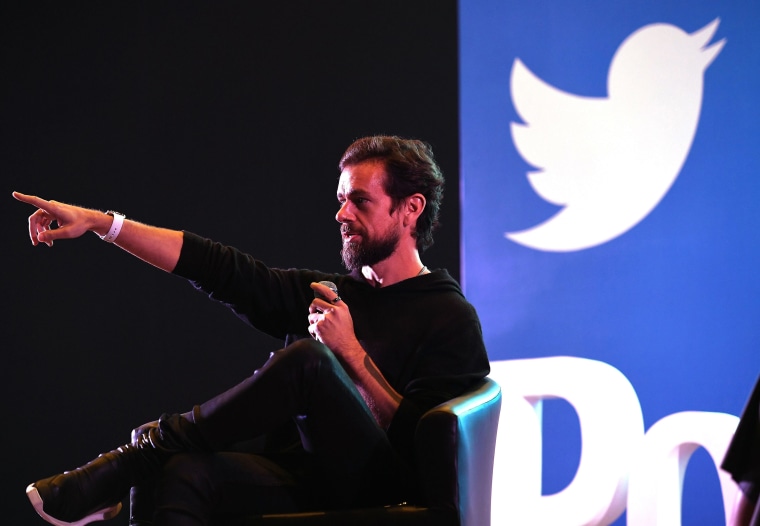Twitter is banning political advertisements, subtweeting Facebook
“Paying to increase the reach of political speech has significant ramifications that today’s democratic infrastructure may not be prepared to handle,” CEO Jack Dorsey wrote on Wednesday afternoon.
 PRAKASH SINGH/AFP/Getty Images
PRAKASH SINGH/AFP/Getty Images
Twitter CEO Jack Dorsey has announced that the social media platform will soon ban all paid political advertisements leading into the 2020 U.S. presidential election. The policy will be detailed in its entirety on November 15, and officially instated on November 22. "A political message earns reach when people decide to follow an account or retweet," Dorsey wrote in a lengthy thread posted to his Twitter account. "Paying for reach removes that decision, forcing highly optimized and targeted political messages on people."
Four years ago, Twitter's political sales department presented a number of flashy advertising options to target certain demographics ahead of the 2016 presidential election. Now, as Facebook faces continued backlash for its weakened policy on political advertisements (which the site recently announced it will not fact-check), Dorsey and team are taking a different stance. And they're subtweeting Facebook too. "For instance," Dorsey wrote, "it‘s not credible for us to say: “We’re working hard to stop people from gaming our systems to spread misleading info, buuut if someone pays us to target and force people to see their political ad…well...they can say whatever they want!" Sounds familiar.
He continued: "Internet political ads present entirely new challenges to civic discourse: machine learning-based optimization of messaging and micro-targeting, unchecked misleading information, and deep fakes. These challenges will affect ALL internet communication, not just political ads. Best to focus our efforts on the root problems, without the additional burden and complexity taking money brings."
"This isn’t about free expression," Dorsey concluded. "This is about paying for reach. And paying to increase the reach of political speech has significant ramifications that today’s democratic infrastructure may not be prepared to handle."
Find the full thread below.
A political message earns reach when people decide to follow an account or retweet. Paying for reach removes that decision, forcing highly optimized and targeted political messages on people. We believe this decision should not be compromised by money.
— jack 🌍🌏🌎 (@jack) October 30, 2019
These challenges will affect ALL internet communication, not just political ads. Best to focus our efforts on the root problems, without the additional burden and complexity taking money brings. Trying to fix both means fixing neither well, and harms our credibility.
— jack 🌍🌏🌎 (@jack) October 30, 2019
We considered stopping only candidate ads, but issue ads present a way to circumvent. Additionally, it isn’t fair for everyone but candidates to buy ads for issues they want to push. So we're stopping these too.
— jack 🌍🌏🌎 (@jack) October 30, 2019
In addition, we need more forward-looking political ad regulation (very difficult to do). Ad transparency requirements are progress, but not enough. The internet provides entirely new capabilities, and regulators need to think past the present day to ensure a level playing field.
— jack 🌍🌏🌎 (@jack) October 30, 2019
A final note. This isn’t about free expression. This is about paying for reach. And paying to increase the reach of political speech has significant ramifications that today’s democratic infrastructure may not be prepared to handle. It’s worth stepping back in order to address.
— jack 🌍🌏🌎 (@jack) October 30, 2019